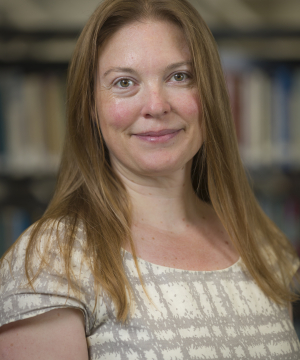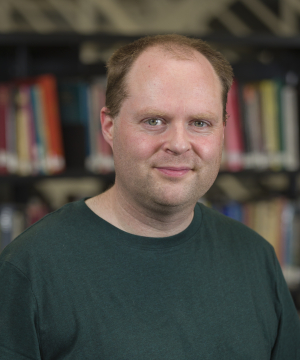Course details
Natural Sciences at Homerton
At Homerton we accept around 30 Natural Scientists each year, and around 15 of these have applied through the “biological” route. Our College Fellows share responsibility for guiding you through your courses, and we conduct many supervisions personally. They will encourage you to be your very best, but also help you to cope with the pressures of an intense course. When not teaching you, our Fellows conduct research on diverse subjects, including viral genomes, HIV resistance, the impacts of invasive species, the neural basis of addiction, and cancer diagnosis.
The sense of community within our scientists is what makes us stand out as a College. You will find scientists at different stages in their careers working together, supporting each other, and socialising together. We also want you to enjoy yourselves, and so we will organise subject dinners, pizza nights, guest lectures and quizzes to bring everyone together.
At Homerton, we place particular emphasis on helping students to gain additional research experience during the vacations. Many of our students have gained prestigious internships during their time at Cambridge. We take great pride in the fact that the vast majority of our students immediately progress to Masters degrees or Doctorates, and from there into exciting international careers. You will meet many of our past students during your time at Cambridge; we invite them back at regular intervals, and will do the same for you.
Hear from our students
“One of my favourite memories was in first year, where we did an ecology field trip in Wales in Easter break. We had the opportunity to talk casually with our lecturers and meet people outside of college (which can be daunting in a 600 person lecture hall) as well as direct our own experiments - with a fun find being a pregnant lobster. With Natural Sciences through practicals and field trips you got to mix outside of college, with a new friendly face in lectures making 9ams or a long practical that much more enjoyable!
"Most of the people you ask (including myself) will say they choose Natural Sciences because it was broad and gave them options. At first I found this daunting and worried I wouldn't find my specific passion in amongst so many disciplines. Being at Homerton I was encouraged to take the modules which felt right and given great advice especially from the older year groups. Through first and second year each of us have found our own scientific path from astrophysics to conservation. But despite doing so many different options we our still one cohort and often meet up over pizza nights.” - Joanna Mead
"Homerton is such a wonderful place to study the biological sciences. Because there is a relatively large number of students in each year, there is a real sense of community and collaboration within the college, with everyone happy to help at all hours of the day! Supervisions are lively and often take place in the amazing teaching spaces around the college - super convenient when you are busy with labs, lectures and all the other activities available to take part in during a Cambridge term." - Iona Harrison
Natural Sciences at Cambridge is a unique and demanding course that offers a wide range of physical and biological subjects from across 16 scientific University departments. You start with a broad first year, and gradually become more specialised in the second and third years. The breadth of the course allows extensive interdisciplinary learning, and for you to develop a passion for subjects that you may not have experienced before. By the third year, most students are focused on a specific discipline, and become fully integrated into a department where they will undertake a research project or dissertation.
The course offers teaching by world-leading experts in their field. You are taught through a series of morning lectures (nine to 12 per week) and afternoon practical classes (between two and four per week). You will also have up to four supervisions each week where you will be taught in small groups (usually of two or three students); this is what really distinguishes our teaching from other courses. There are exams at the end of every year to allow progression; the format of these depends largely upon your subject choices, but they can include essays, calculations, short answer questions, multiple choice questions and practical assessments.
We are looking for students who have the academic ability and potential to succeed on the course, as well as the necessary interest in and motivation for the subject.
In order to explore Natural Sciences in more detail we would recommend the introductory reading for prospective applicants and offer holders listed here. You can also find the offer holder reading list available here.
You can also explore your chosen subject through the Homerton Resources page.
Although we do occasionally consider applicants with two science and/ or mathematics A-levels, most applicants have at least three of Biology, Chemistry, Mathematics and Physics to A-level. Your A-level subjects may affect which subjects you can take in the first year, but Biology of Cells, Earth Sciences, Evolution and Behaviour and Physiology of Organisms do not require any particular A-level subjects.
Admission Assessment: Applicants for Natural Sciences must sit the Engineering and Science Admissions Assessment (ESAT) as part of the application to the University. Applicants must be pre-registered for this test. Please see check admission assessments for further details. For Natural Sciences admissions, Homerton does not require STEP papers, nor do we currently ask for any additional qualifications or tests beyond those that are required by the University in general.
Written Work: There is no requirement to submit written work for Natural Sciences.
The majority of our graduates progress immediately onto Masters degrees or PhDs, and we have many alumni working at the forefront of their subject around the world. The Natural Sciences degree also gives you a range of analytical, organisational and presentational skills which are sought after by employers around the world. We also have graduates working in environmental consultancy, pharmaceutical development, education, broadcasting, management consultancy, clinical psychology, and in many, many other roles.








